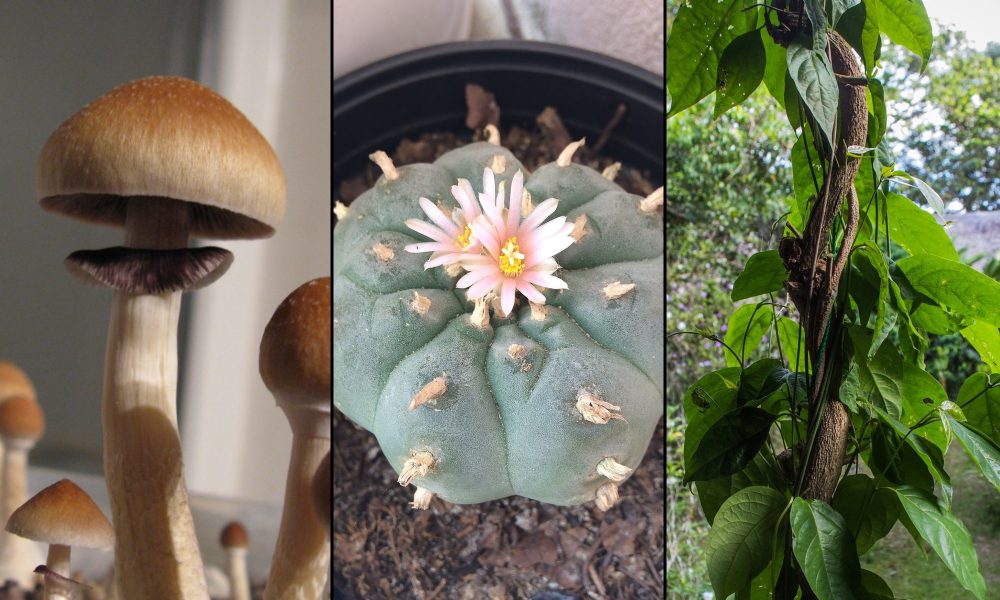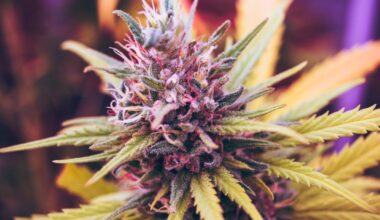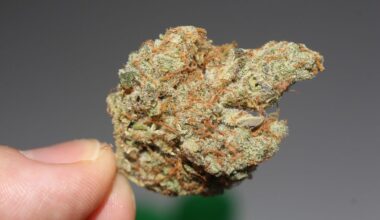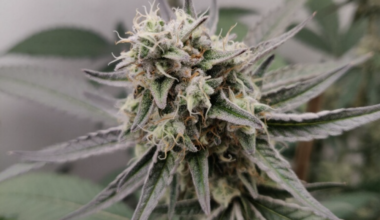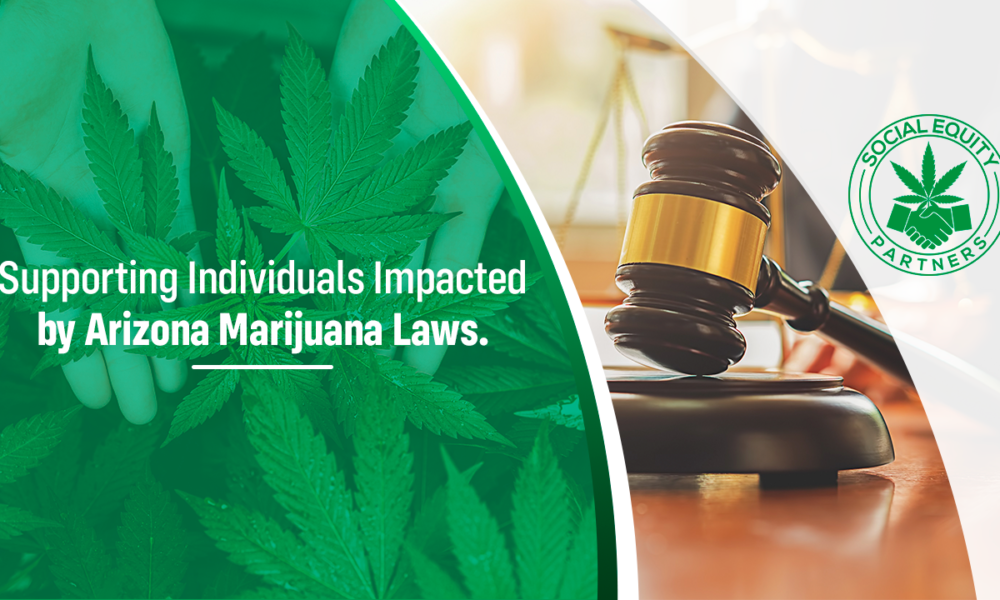About a month after Colorado officials certified a historic psychedelics legalization measure for the statewide 2022 ballot, activists with a separate campaign conceded on Monday that “it is very unlikely” that they will qualify their alternative entheogen reform initiative.
While the Decriminalize Nature Colorado campaign still plans to turn in signatures they have collected to the secretary of state’s office, activists said that the prospects of ballot qualification are dim. Instead, they will be turning their attention to a new campaign meant to help organize advocacy for “legacy communities” that they say could be impacted by the other campaign’s already-certified measure.
Nicole Foerster, co-proponent of Initiative 61 and founder of Decriminalize Nature Boulder County, said at a press conference on that the campaign does “not have an official count” for the signatures that they’ve collected. “We are officially announcing right now that it is very unlikely that we will make it onto the ballot in 2022,” they said.
The measure would have simply removed criminal penalties for the possession, cultivation, gifting and delivery of entheogens such as psilocybin, ibogaine, mescaline and DMT by adults 21 and older.
Further, the initiative would have made it lawful to conduct psychedelics services for guidance, therapy and harm reduction and spiritual purposes with or without accepting payment. It would not have been legal to sell any of the psychedelics, however.
The fact that the campaign is unlikely to qualify “is disappointing—but, you know, I think we’re all fine with it,” Foerster said.
Organizers needed to submit at least 124,632 valid signatures to qualify for the ballot.
At the press conference outside of the Colorado State Capitol, activists emphasized that they felt a need to pursue a separate psychedelics initiative as an alternative to the New Approach PAC-backed Natural Medicine Health Act, in part because they feel it imposes undue regulations for entheogenic substances.
“We didn’t intend to even campaign this year,” Foerster said. “We campaigned in reaction to [the certified measure] that we do not support.”
KEEP NATURE NATURAL – NO NATURAL MEDICINE HEALTH ACT https://t.co/gLQwXwxChx
— Nicole Foerster (@kainfoerst) August 8, 2022
Foerster asserted that “a lot of people were left out of the conversation” during early discussions about possible campaign collaboration—and “a lot of really powerful policy decisions were made without sufficient input from communities who will be impacted.”
“We drafted Initiative 61 to contrast the polling that was done statewide, mainly towards the general public and, as Initiative 58 calls them, the psychedelic naive general public,” Foerster said. “Their policy was crafted to appeal to people who know nothing about this topic, without the full inclusion of people who are going to be affected by the Act if it passes.”
Concerns about the possible corporatization of the psychedelics market also drove their decision to pursue the alternative initiative.
—
Marijuana Moment is tracking more than 1,500 cannabis, psychedelics and drug policy bills in state legislatures and Congress this year. Patreon supporters pledging at least $25/month get access to our interactive maps, charts and hearing calendar so they don’t miss any developments.![]()
Learn more about our marijuana bill tracker and become a supporter on Patreon to get access.
—
“I hope by now we’re as loud [as we can be] that if we’re creating any new industries, we ensure that it’s going to be equitable, with social equity and health equity, and that the community has a voice in this,” Melanie Rose Rodgers, co-proponent of Initiative 61 who also served as a main organizer for a first-of-its-kind local psilocybin decriminalization initiative that Denver voters approved in 2019, told Marijuana Moment in a phone interview on Monday. It shouldn’t be “just a few people making the rules for everybody.”
At this point, it’s all but certain that Colorado voters will only have one psychedelics reform measure to decide on this November. That “Natural Medicine Health Act” would legalize certain psychedelics and also create licensed psilocybin “healing centers” where people could use the substance for therapeutic purposes.
The Natural Medicine Colorado campaign, which did have sizable financial backing and a professional petitioning resources, had submitted about 100,000 more signatures than required for ballot access, a sizable buffer that was the result of just about three months of petitioning.
One of the co-proponents of Initiative 58, Kevin Matthews, also served as campaign manager for the earlier Denver psilocybin measure. It was a policy development that helped ignite a national movement that has reached cities across the U.S., as well as a growing number of state legislatures and Congress.
The new statewide measure Matthews is working on would legalize possession of certain psychedelics, establish a therapeutic model for supervised psilocybin treatment and provide a pathway for record sealing for prior convictions.
Meanwhile, Colorado Gov. Jared Polis (D) was recently asked about the prospects of enacting psychedelics reform in the state, and he acknowledged that advocates are working to accomplish that policy change at the ballot and also said he supports the idea of decriminalizing the substances.
In June, Polis signed a bill to align state statute to legalize MDMA prescriptions if and when the federal government ultimately permits such use.
He also issued an executive order last month to provide broad professional licensing protections for workers who use marijuana in compliance with state law. The move further prevents state agencies from assisting in any out-of-state investigations related to lawful cannabis conduct that could result in employment penalties.
With respect of psychedelics, Colorado is far from the only state where reform is advancing.
A California bill to legalize psychedelics possession that already passed the Senate and two Assembly committees is teed up for a final committee vote before potentially heading to the floor. Because it’s been amended, it would still need to return to the Senate for concurrence before potentially moving to the governor’s desk.
The leader of the New Jersey Senate filed a bill in June that would legalize the possession, home cultivation and gifting of psilocybin mushrooms for adults 21 and older—with provisions that give adults even more freedoms for the psychedelic than are afforded under the state’s current marijuana laws.
The governor of Connecticut signed a large-scale budget bill in May that includes provisions to set the state up to provide certain patients with access to psychedelic-assisted treatment using substances like MDMA and psilocybin.
Maryland’s governor recently allowed a bill to go into law without his signature to create a state fund to provide “cost-free” access to psychedelics like psilocybin, MDMA and ketamine for military veterans suffering from post-traumatic stress disorder (PTSD) and traumatic brain injury.
A Massachusetts-based campaign, Bay Staters for National Medicine (BSNM), is also supporting a statewide reform push to force state lawmakers to file legislation to both legalize entheogenic substances for therapeutic use and otherwise decriminalize certain psychedelics.
The Maine Senate approved a bill in April to to create a medical psilocybin program in the state, but the House of Representatives refused to go along.
Also that month, Georgia lawmakers advanced a bipartisan resolution that calls for the formation of a House study committee to investigate the therapeutic potential of psychedelics like psilocybin and make recommendations for reforms.
The governor of Utah signed a bill in March to create a task force to study and make recommendations on the therapeutic potential of psychedelic drugs and possible regulations for their lawful use.
A Missouri House committee also held a hearing that month on a GOP-led bill to legalize a wide range of psychedelics for therapeutic use at designated care facilities while further decriminalizing low-level possession in general.
The Washington State legislature recently sent a budget bill to the governor’s desk that includes a proposal to direct $200,000 in funding to support a new workgroup to study the possibility of legalizing psilocybin services in the state, including the idea of using current marijuana regulatory systems to track psychedelic mushrooms.
In March, the Hawaii Senate approved a bill to set up a state working group to study the therapeutic benefits of psilocybin mushrooms and develop a “long-term” plan to ensure that the psychedelic is accessible for medical use for adults 21 and older.
Also that month, the Oklahoma House of Representatives passed a bill to decriminalize low-level possession of psilocybin and promote research into the therapeutic potential of the psychedelic.
Rhode Island lawmakers introduced a pair of drug decriminalization bills in March—including one focused on psilocybin and buprenorphine that would authorize doctors to prescribe the psychedelic mushroom.
Washington State lawmakers also introduced legislation in January that would legalize what the bill calls “supported psilocybin experiences” by adults 21 and older.
New Hampshire lawmakers filed measures to decriminalize psilocybin and all drugs.
Legislation was also enacted by the Texas legislature last year requiring the state to study the medical risks and benefits of psilocybin, MDMA and ketamine for military veterans in partnership with Baylor College of Medicine and a military-focused medical center.
Congressional lawmakers and federal agencies have also started to take serious interest in psychedelics policy.
For example, top federal health agency says it is actively “exploring” the possibility of creating a task force to investigate the therapeutic of certain psychedelics like psilocybin and MDMA in anticipation of federal approval of the substances for prescription use.
In January, bipartisan House lawmakers sent a letter to the Drug Enforcement Administration (DEA) that implored the agency to allow terminally ill patients to access psilocybin as an investigational drug, pursuant to federal “Right to Try” statute enacted under the Trump administration.
DEA is now facing another lawsuit for refusing to allow a Seattle-based doctor to obtain psilocybin for his oncology patients. Plaintiffs say that the agency is unlawfully failing to abide by federal law by denying such access under the circumstances.
Bipartisan House and Senate lawmakers filed companion bills last month that seeks to clarify the intent and application of the “Right to Try” law at the center of the case. Sens. Cory Booker (D-NJ) and Rand Paul (R-KY), along with Reps. Earl Blumenauer (D-OR) and Nancy Mace (R-SC), are the lead sponsors of the legislation.
In May, Booker and Sen. Brian Schatz (D-HI) separately pushed top federal officials to provide an update on research into the therapeutic potential of psychedelics, arguing that ongoing federal prohibition has stymied studies.
Federal health officials recently recognized that federal prohibition makes it harder to study the benefits of psychedelics, requiring researchers to jump through additional regulatory hoops.
Activists including one of the plaintiffs in the Right to Try case, Erinn Baldeschwiler, staged a demonstration outside of DEA headquarters in Virginia in May, demanding that the agency allow terminally ill patients to access psilocybin therapy.
DEA is separately being sued over repeated delays in processing requests for public records related to psychedelics and marijuana.
Following significant pushback from the research and advocacy communities, the agency recently rescinded its proposal to ban five psychedelic compounds that scientists say could hold significant therapeutic potential. DEA also cancelled a hearing it previously scheduled on the proposal.
Separately, the agency has separately increased production quotas for the production of certain psychedelics like psilocybin in an effort to promote research, but its scheduling decisions have continued to represent obstacles for scientists.
The U.S. House of Representatives recently approved a large-scale defense bill that includes amendments directing the Department of Defense (DOD) to carry out a study into the medical potential of psilocybin and MDMA, as well as marijuana, for military veterans with certain conditions.
Photo elements courtesy of carlosemmaskype and Apollo.
Medical Disclaimer:
The information provided in these blog posts is intended for general informational and educational purposes only. It is not a substitute for professional medical advice, diagnosis, or treatment. Always seek the advice of your physician or other qualified healthcare provider with any questions you may have regarding a medical condition. The use of any information provided in these blog posts is solely at your own risk. The authors and the website do not recommend or endorse any specific products, treatments, or procedures mentioned. Reliance on any information in these blog posts is solely at your own discretion.
